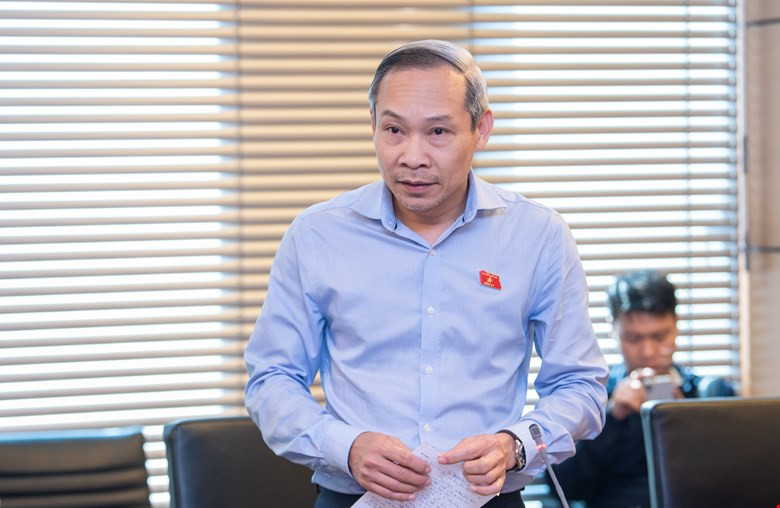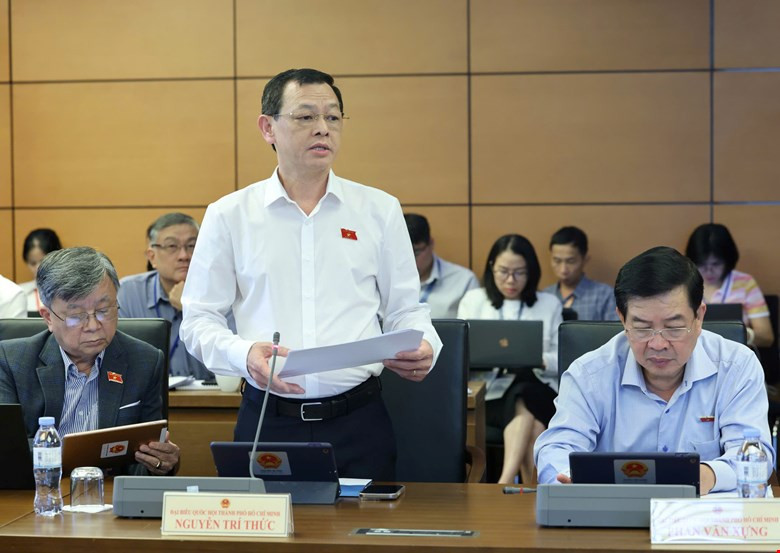On the afternoon of May 17, the National Assembly held a group discussion on the draft law amending and supplementing several laws, including the Law on Public Procurement, the Law on Investment under the Public-Private Partnership model, the Customs Law, the Law on Export and Import Tax, the Law on Investment, the Law on Public Investment, and the Law on Management and Use of Public Property.
Proposal to remove 30% of business conditions under investment law

Contributing to the draft amendment of the Investment Law, Deputy Phan Duc Hieu (Standing Member of the National Assembly’s Economic Committee) suggested that 30% of the 229 conditional business sectors currently regulated by law could be abolished.
He recommended the government eliminate the requirement for obtaining investment approval and approval for investment adjustments for privately funded projects.
According to Hieu, such removal would not create management loopholes. Businesses in conditional sectors are already subject to multiple licensing steps such as investment permits, business condition certificates, and professional licenses. Moreover, key sectors like insurance, banking, aviation, and seaports already have specific licensing regulations.
"The essence of land-use projects is already governed by the Land Law. So there’s no need to worry about oversight gaps if we drop this investment approval requirement. Keeping it only creates procedural overlap," said Hieu.
"However, under Article 29 of the Investment Law, businesses still have to go through another round of investment approval even though the content overlaps, leading to the submission of two separate files for the same request.
Additionally, Article 29 includes requirements with limited meaning, such as approving the project name, enterprise name, factory, investor, project size, objectives, and capital - all of which are already regulated under other laws.
Under Article 41, every time a company adjusts its investment capital, it must apply for approval again.
Hieu gave a practical example of a project requiring an investment term. During adjustment, license issuance delays can cause the project to exceed its timeframe, forcing the investor to apply for changes again - often without a valid legal basis.
"This poses great risk to investors," he emphasized.
Five years without public Wi-Fi installation due to procurement barriers

Addressing the amendments to the Law on Public Procurement, Deputy Minister of Health Nguyen Tri Thuc emphasized that both IT companies and hospitals in Vietnam are fully capable of executing digitalization projects. The problem lies in the legal mechanisms available to facilitate this.
“In theory, it sounds simple. But in practice, the bidding process is so complicated it becomes impossible,” he said.
He cited the case of Cho Ray Hospital, which has spent five years attempting to install internal Wi-Fi for healthcare staff. Despite multiple surveys, the project has repeatedly failed due to the inability to complete procurement.
According to Nguyen Tri Thuc, even drafting technical specifications faces significant hurdles. Slight deviations can lead to accusations of "manipulation," "bid rigging," or collusion, even when done with integrity.
These challenges also affect other technical setup efforts at Chợ Rẫy Hospital, where he previously worked.
Regarding electronic medical records, he noted that Ho Chi Minh City University of Medicine and Pharmacy Hospital - recognized for effectively implementing digital records - partly achieved this success because it avoided complex bidding procedures.
While the National Assembly has issued Resolution 193 and the government has enacted Decree 188 allowing pilot implementation of direct contractor selection in 2025 and 2026, delegates argued that amendments to the Procurement Law should explicitly allow direct procurement for goods and services serving science, technology, innovation, and digital transformation.
Tuan Nguyen